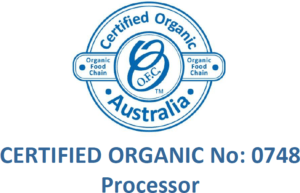
One of the main differences between organic and non-organic meat is that organic meat does not contain antibiotics or hormones. When animals are raised for the purpose of mass production, the conditions that they are raised in are not wonderful. There are so many animals being raised in a small area that they need to be given medication so that they do not transmit diseases to each other. In addition, they are given growth hormones so that they can mature and their meat can be sold. Hormones and antibiotics are passed through the animal and then transmitted into the ground affecting ground water.
In organic meat, the animals are not treated with hormones or antibiotics and the farm is not overcrowded. Not only does this mean better treatment of the animals but it also means that humans do not have to deal with the effects of antibiotics and hormones being put into the ground water. Organic meats are also free of preservatives and other chemical agents which are used to make the meat last for extremely long periods of time on the shelf.
When organic meats are processed, the meat is not exposed to any non-organic chemicals or agents that could be passed on to the consumer, once again protecting human consumers from potentially harmful substances and diseases. It’s a very strict process that results in better treatment of animals and protection of consumer health. There are several differences between organic meat and non-organic meat, from the way the animals are treated, what they are fed and how the meat is processed to name a few.


